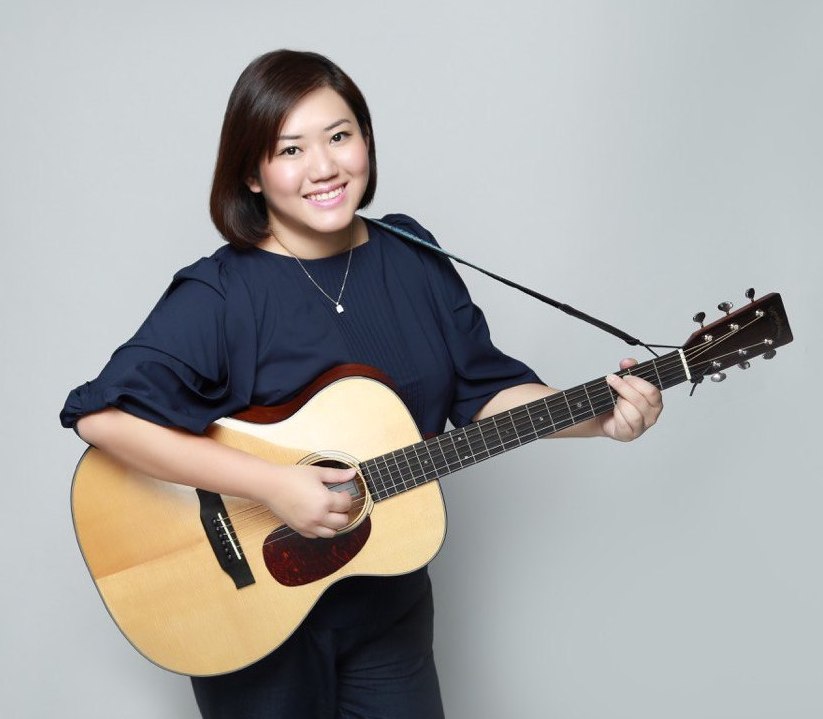
Meet Evelyn Lee, 35, a registered music therapist and the founder of Prospect Music Therapy, an organisation that uses music therapy methods to promote health and well-being. Her clients’ needs are wide-ranging—from neonatal to palliative care—and among them are infants with complex needs, children with developmental delays, stroke sufferers and the elderly with dementia. Over a jamming session with ISHAN SINGH, Evelyn sheds light on her unique profession and the transformative power of music.
Please tell us more about yourself and what you do.
My role at Prospect Music Therapy involves designing and conducting music therapy for individuals and groups, such as children with special needs, adults with mental health conditions, caregivers and the elderly. I have a Master’s degree in Music Therapy, and Bachelor of Arts in Music and Psychology (with a concentration in Neuropsychology), and am presently pursuing a PhD in Music Therapy.
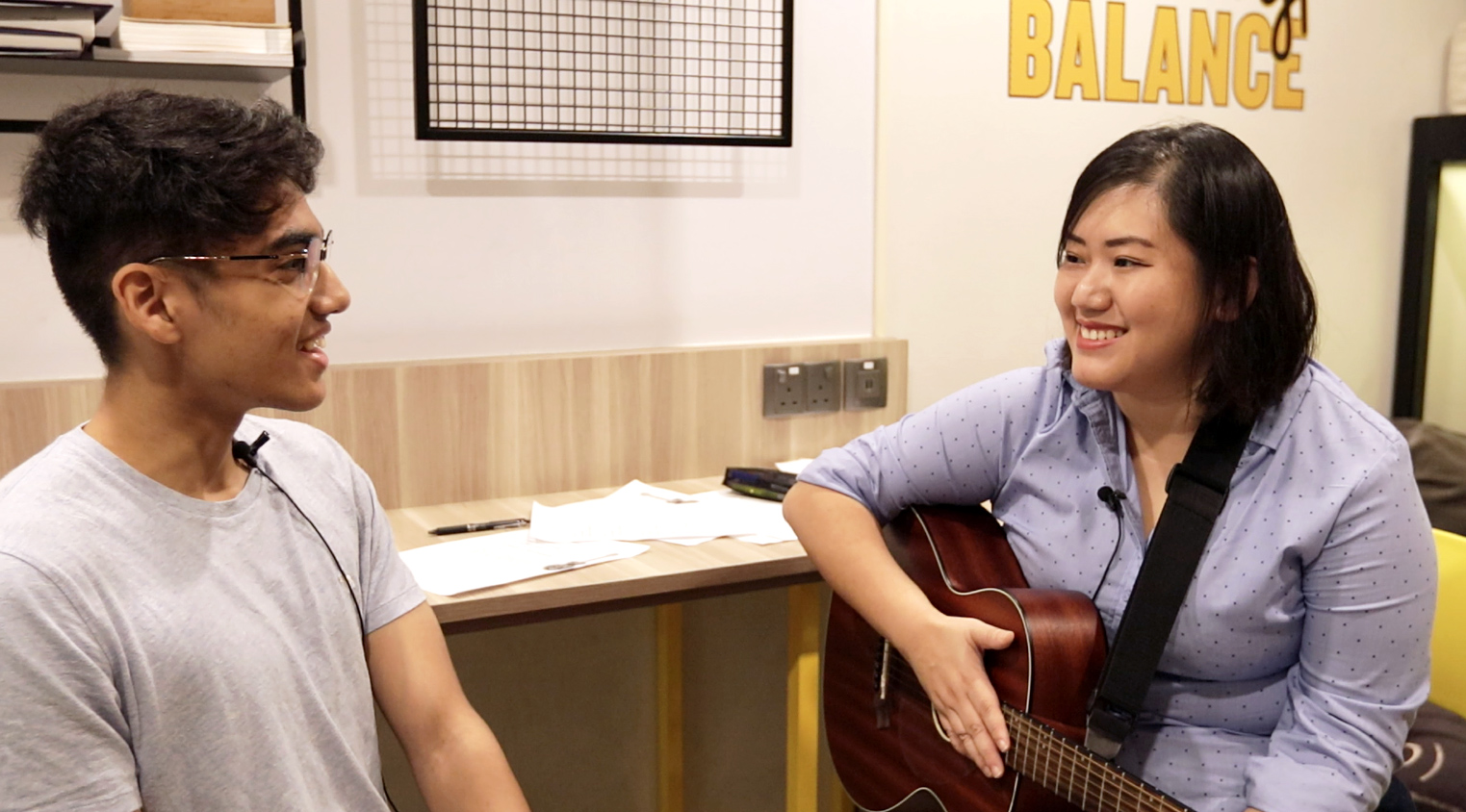
On your website, you cite community music therapy as a research interest—what is that, in a nutshell, and how does it differ from music therapy?
Music therapy is about using music as a tool to facilitate the expression of an individual’s emotions; similar to other forms of therapy (such as physiotherapy and occupational therapy), the goal is to achieve functional health. Community music therapy, on the other hand, goes beyond the person—it uses music to strengthen community bonds and address the issues facing society as a whole.
People often mistake music therapy for music lessons. How different are they?
In music lessons, we try to understand music by learning how to play instruments better or studying music history. In music therapy, however, mastering of instruments isn’t the focus. Instead, the instruments are used as tools to accomplish other goals, such as alleviating depression.
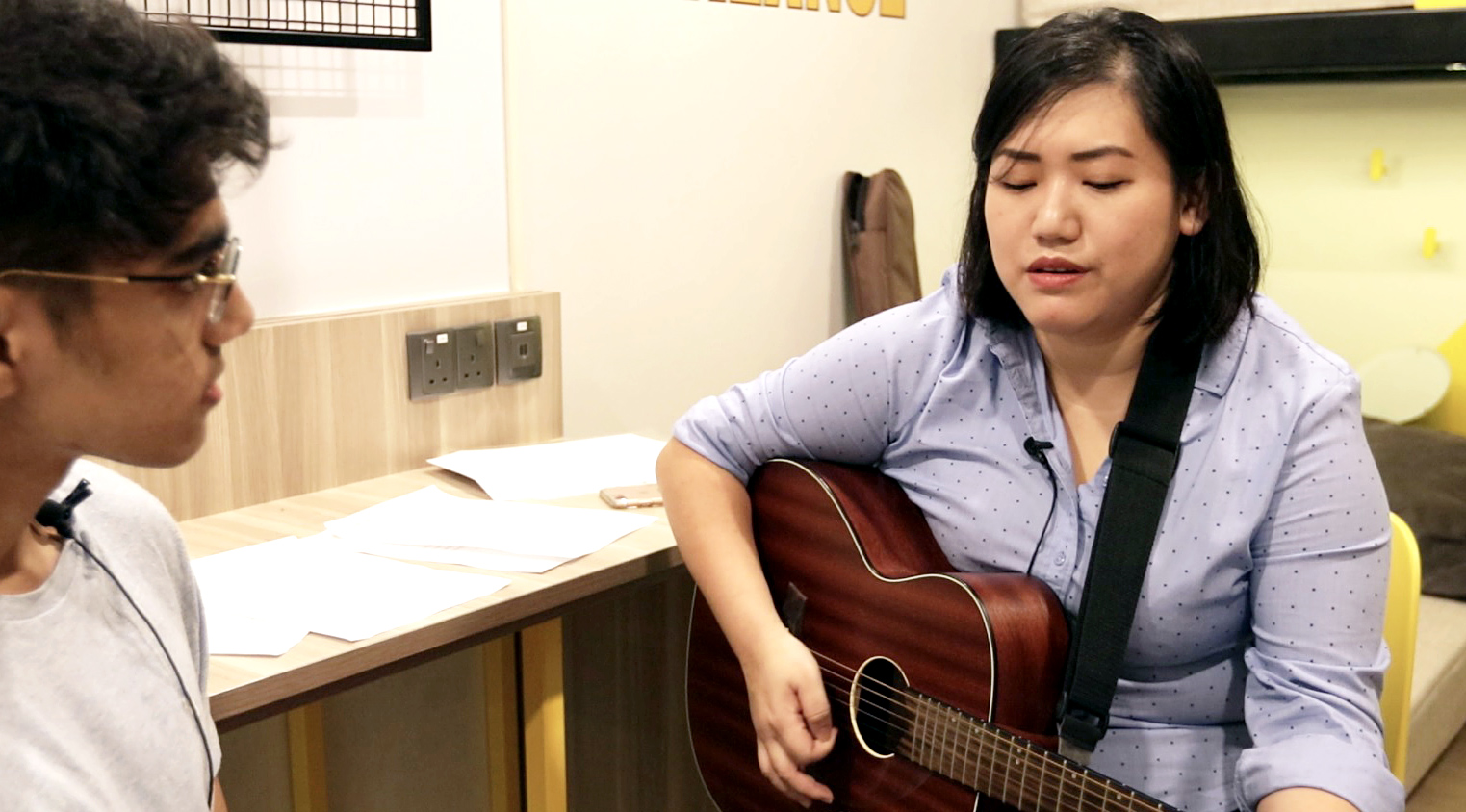
What are some little-known facts about music therapists?
That we’re very qualified and proficient musicians! Moreover, we use music in a very versatile form; for instance, we don’t just play and sing, but do a lot of improvisation, too. That’s something only skilled musicians equipped with therapeutic knowledge can do.
There’s still some degree of stigma surrounding the term “therapy”. Is that the case for music therapy as well?
Not really. Music itself is a very engaging art form, so applying its use in therapy makes it more appealing to those who are not fond of verbal processing or who are not ready for talk therapy. Music therapy is a very non-confrontational, gentle and—in my opinion—beautiful way of approaching therapy.
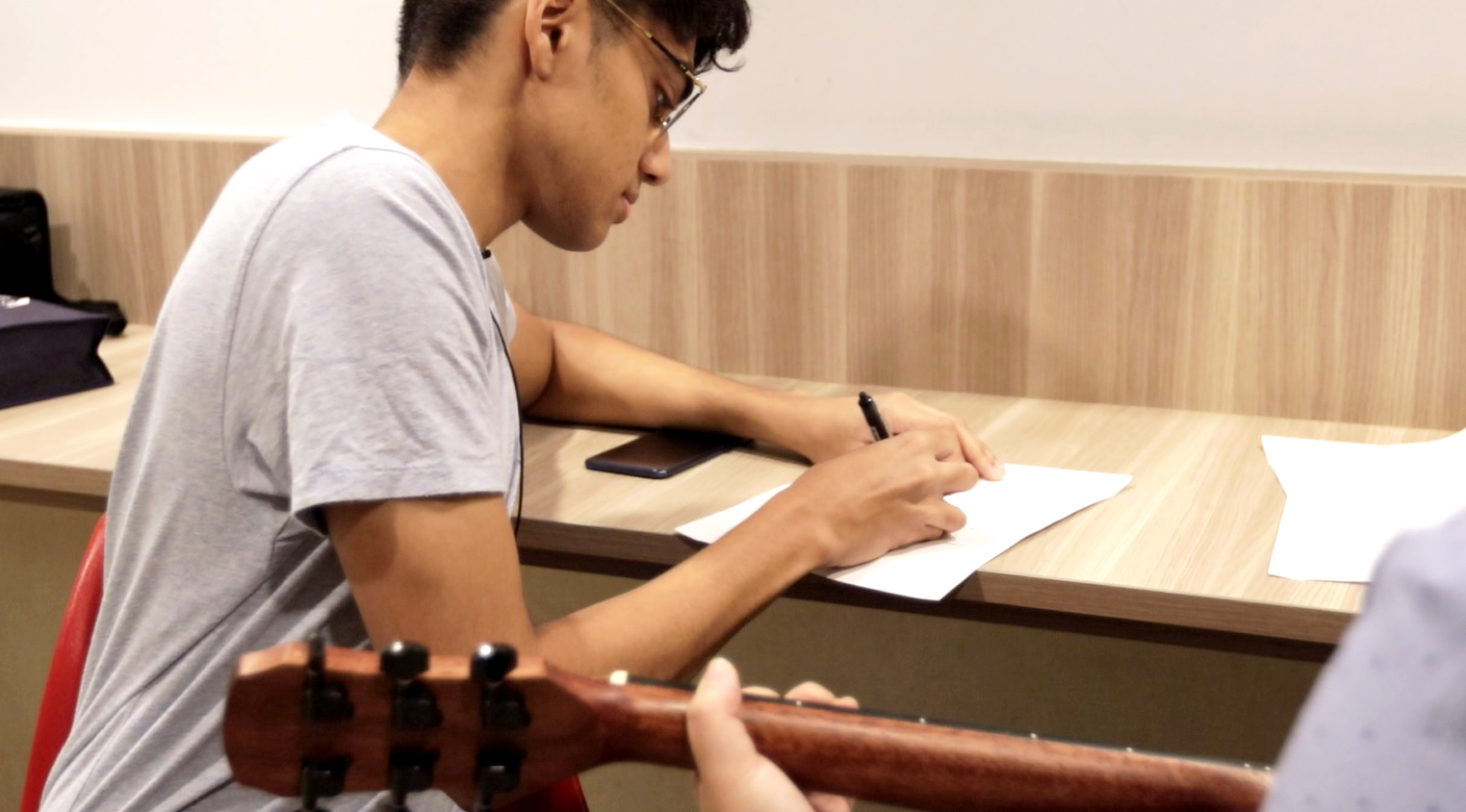
What have you learned about mental health, having worked with many clients who struggle with mental illness?
That no matter our cultural or socio-economic backgrounds, we essentially share a common need to be loved, to have a purpose in life, and to form meaningful bonds with others. Having said that, I do believe people (particularly the youth) have to be vigilant about how they use and consume social media. We should remember that pictures we see on Instagram and Facebook aren’t an accurate depiction of someone’s real life and actual experiences, or else we risk trying to meet false expectations and negatively impacting our mental health.
Is all music therapeutic in nature?
No. Music has a tremendous power to make someone feel better, but it can also make them feel worse. Like any tool, it must be used effectively. I’d therefore encourage people to be mindful about what they listen to, and understand that if the music they listen to doesn’t help alleviate their mood, they should reconsider these choices.
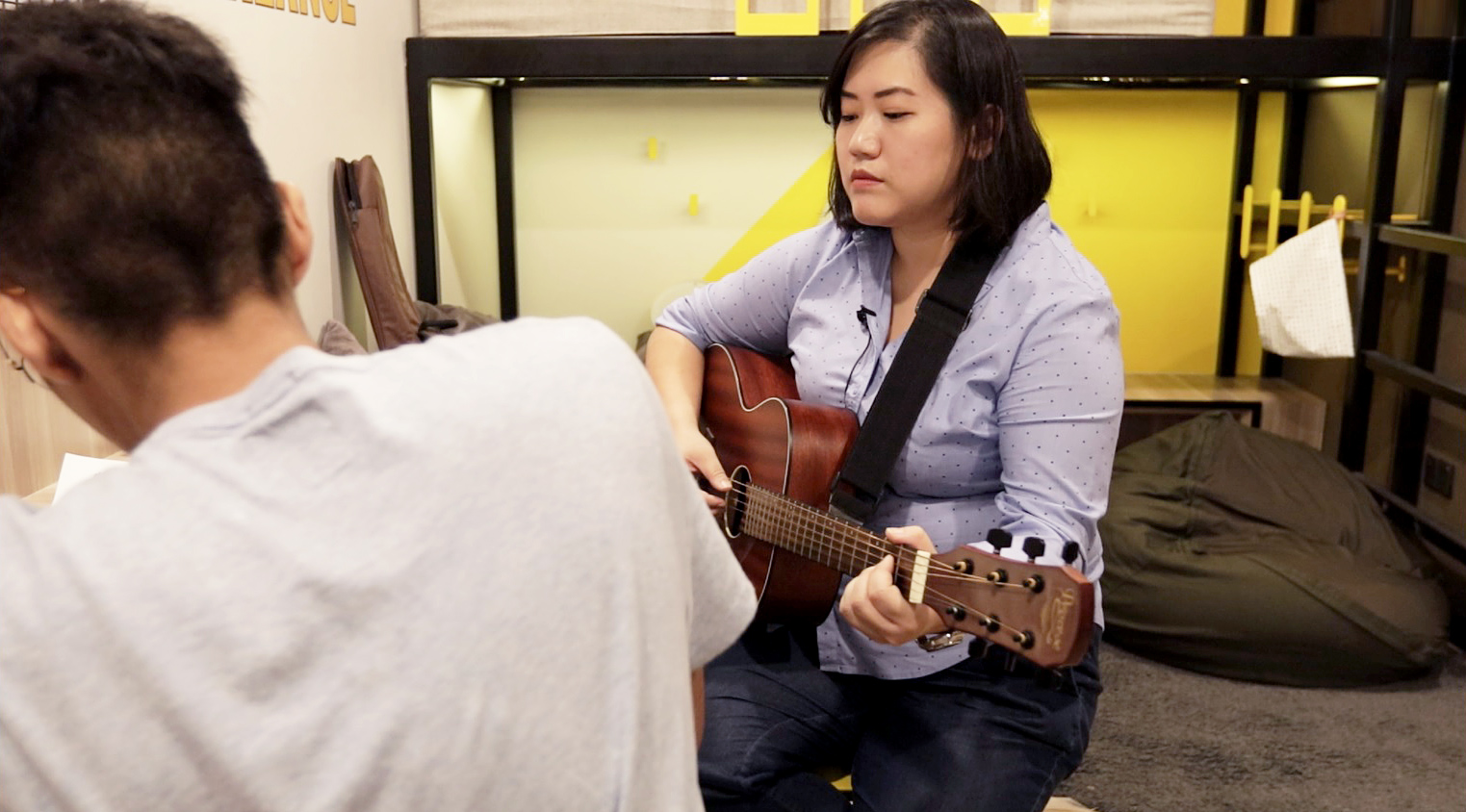
Can you share any instances of how music therapy had a positive impact on any of your participants?
Music therapy group experiences can offer an outlet for introverted persons or adolescents struggling with anxiety to be validated, in a non-verbal way. Once, I had a teenager who wrote to me two weeks after the completion of the group therapy, to tell me that the group improvisation allowed her to explore her musicality, without drawing attention to herself. There was also an older man with dementia. He had trouble speaking coherently during a conversation, but when we sung in a musical dialogue (a conversation embedded in musical phrases), he was surprised to be able to recall words and song lyrics easily. This improved his mood tremendously.
Find out more about Evelyn and Prospect Music Therapy at http://www.prospectmusictherapy.com
 |
Ishan Singh is a second-year undergraduate at the Singapore Management University’s Lee Kong Chian School of Business, and an Editorial Assistant at Social Space Magazine. He spends any spare time he has rapping or producing music, and hopes to pursue a career in music. Passionate about the arts and writing, Ishan hopes to write articles and make videos that shed light on the importance of the arts in our communities. He can be reached at ishan.singh.2018@business.smu.edu.sg |








Comments